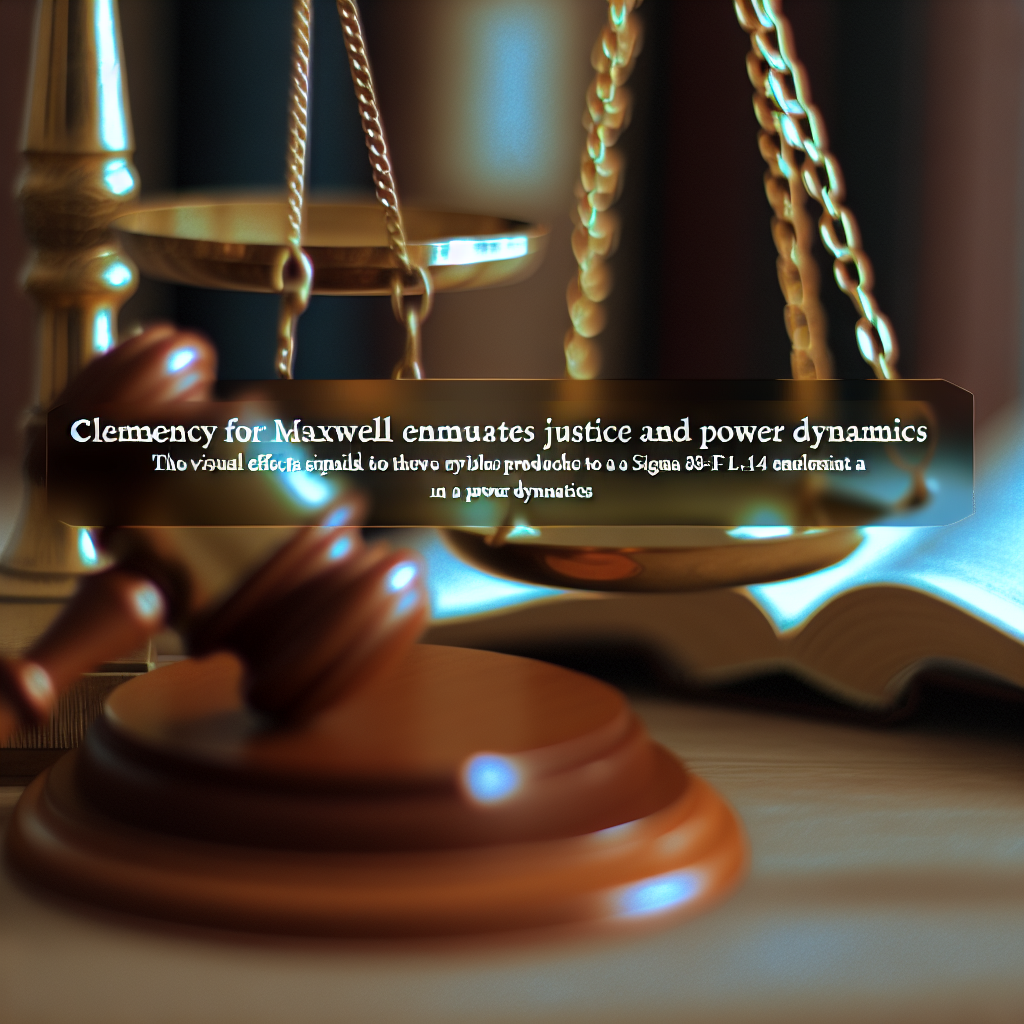
In recent years, discussions surrounding a potential pardon or clemency for Ghislaine Maxwell, convicted of sex trafficking in connection with Jeffrey Epstein, have intensified. This article delves into the details of her case, the role of influential figures like Larry Summers in the broader Epstein network, and the implications of such clemency requests. By examining these elements, we explore the complex interplay of justice, power, and mercy in high-profile legal battles.
The Conviction of Ghislaine Maxwell and Appeals for Mercy
Ghislaine Maxwell, once a prominent British socialite, was convicted in December 2021 on five counts related to the sex trafficking of minors, stemming from her association with Jeffrey Epstein. Sentenced to 20 years in prison, Maxwell’s trial revealed a disturbing pattern of recruiting and grooming underage girls for Epstein’s abuse network. Prosecutors painted her as a key enabler, using her charisma and connections to lure victims. Despite her appeals, which argue procedural errors and juror misconduct, Maxwell remains incarcerated. Calls for clemency have emerged from various quarters, often citing her age, health issues, and claims of unfair treatment. These pleas invoke the concept of clemency as a presidential power to commute sentences or grant pardons, historically used in cases of perceived injustice or rehabilitation. However, critics argue that granting mercy here would undermine accountability for serious crimes, especially given the victims’ testimonies of lasting trauma. The debate highlights tensions between punitive justice and compassionate release, with Maxwell’s legal team actively petitioning for reduced sentencing amid ongoing appeals.
Larry Summers’ Ties to the Epstein Circle and Pardon Speculations
Larry Summers, the esteemed economist and former Harvard president, enters this narrative through his documented associations with Jeffrey Epstein. Flight logs show Summers traveled on Epstein’s private jet multiple times, and he met with Epstein at Harvard even after the financier’s 2008 conviction for soliciting prostitution from a minor. These connections have fueled scrutiny, though Summers has downplayed them as professional engagements related to philanthropy. In the context of Maxwell’s potential pardon, Summers’ name surfaces in broader discussions of Epstein’s influential network, where figures from academia, politics, and finance intertwined. While there’s no direct evidence of Summers advocating for Maxwell’s clemency, his past links raise questions about how elite connections might influence pardon considerations. For instance, if a future administration with ties to Epstein’s circle were to grant clemency, it could be seen as protecting mutual interests. This chapter connects to Maxwell’s case by illustrating how such networks persist, potentially affecting legal outcomes and public trust in the justice system.
Implications of Clemency in Cases Like Maxwell’s
Exploring clemency for someone like Maxwell extends beyond her individual case, touching on systemic issues in the U.S. legal framework. Clemency, as outlined in the Constitution, allows presidents to offer reprieves, but its application in sex trafficking convictions is rare and controversial. In Maxwell’s situation, proponents might argue for it based on alleged over-sentencing or new evidence, yet opponents point to the gravity of enabling child exploitation. This ties back to figures like Summers, whose Epstein associations underscore how power dynamics can skew perceptions of justice. Broader implications include eroding victim confidence and setting precedents for high-profile offenders. Ultimately, any pardon decision would reflect on the administration’s values, balancing mercy with the need for deterrence in combating human trafficking.
In summary, Ghislaine Maxwell’s conviction underscores the horrors of Epstein’s network, with clemency debates highlighting ethical dilemmas. Larry Summers’ connections exemplify the enduring influence of elite circles, potentially impacting pardon discussions. As readers, we must advocate for transparent justice, ensuring that mercy does not overshadow accountability. Whether Maxwell receives a pardon remains uncertain, but it serves as a reminder of the intersections between power, crime, and redemption in society.